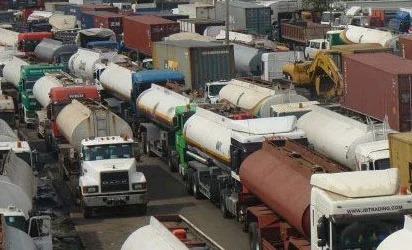
The PUNCH reports that the tanker drivers on Monday parked their trucks, refusing to lift fuel over high cost of operations.
The NARTO President, Yusuf Othman, had in a letter to truck drivers who are members of other unions and associations, said NARTO had made several efforts to secure negotiations for appropriate and commensurate freight rates for its operations from all authorities concerned in the industry, especially the major marketers, without any positive result.
However, the major marketers said the decision of NARTO to stop transporting fuel may not have much effect on its members, some of whom now have separate transporters.
In an exclusive interview with our correspondent on Monday, the Executive Secretary of the MEMAN, Clement Isong, said the association does not have the power to negotiate the cost of transporting fuel, adding that the law does not permit that.
Isong stated that members of MEMAN have negotiated the cost of lifting products with transporters of choice, saying that is what the law allowed.
Reacting to the claim that NARTO had tried to negotiate with MEMAN, he replied: “That is not exactly true, the law does not permit us, NARTO and MEMAN, to negotiate transport rates.
“All my members negotiated with all their transporters and arrived at different rates based on their strength and capacity. That is what the Petroleum Industry Act wants; it wants us to compete. So, in a world in which my transporters have found a way of transporting at a lower cost, for example by using CNG as their fuel, I have an advantage over the other marketer, because my transporter is cheaper, that’s what the law envisages. It envisages competition to bring down prices.
“If what I demand from my transporter are brand new trucks of certain category, then I should expect I will not pay the same thing with a marketer who doesn’t demand brand new trucks from his transporters. It just depends on your business model. We are all competing in the market.”
Isong added, “We are not expected to sit down with NARTO to negotiate and agree prices. If we do that, we’ve broken the law. My members have negotiated with their transporters and have agreed with their transporters.
“In fact, some of my members even own their own trucks. They don’t need to negotiate. They run their own transport. that’s what competition does”.
Asked if the decision of NARTO would affect major marketers, Isong retorted: “Normally, it should not have effects, unless they block the roads; except other things come into play, it should not.”
However, the Vice President of the Independent Marketers Association of Nigeria, Hammed Fashola, said the industrial action would affect all marketers and it would lead to fuel scarcity.
“We have to tell ourselves the whole truth, if major marketers are saying they will not be affected, I think they are trying to play smart. NARTO members lift products for major and independent marketers. I don’t know how it will not affect them,” he said.
The PUNCH reports that the tanker operators on Monday met with the Minister of State for Petroleum Resources (Oil), Heineken Lokpobiri, oil marketers, and other stakeholders to resolve the issues.
Speaking in Abuja after the meeting, Lokpobiri had expressed optimism that the concerns raised by the petroleum products’ transporters would be resolved.
Meanwhile, our correspondent reports that queues are surfacing in some filling stations in Abuja, Kaduna, Ogun, and others.
It was observed that many filling stations still dispensed fuel as of Monday, but there are concerns that the stations would close shops if the tanker drivers refused to resume work





